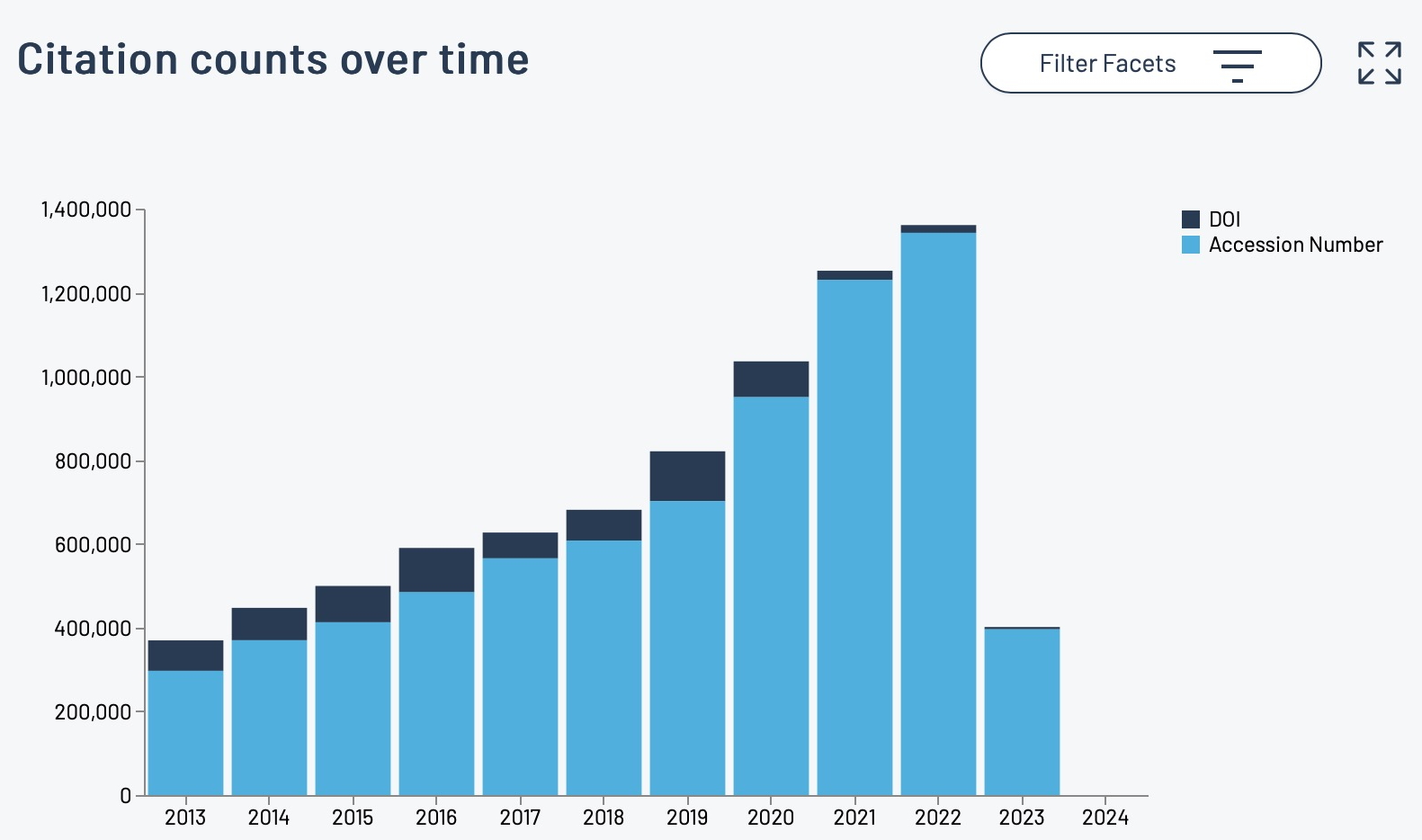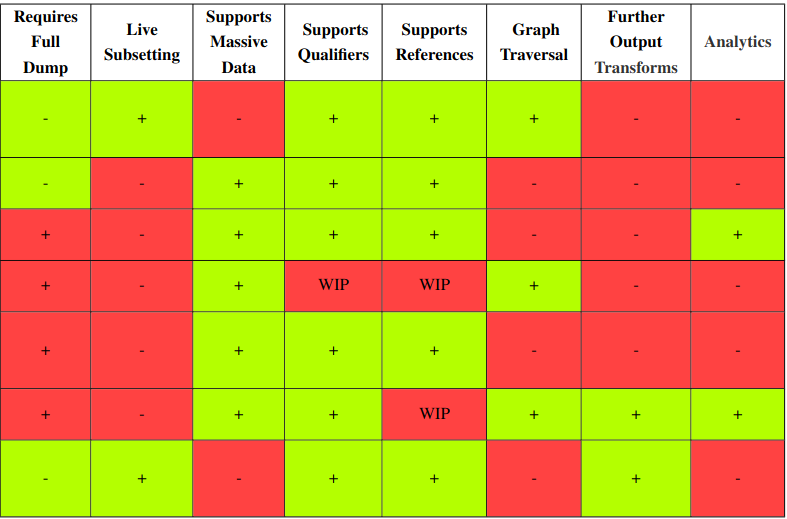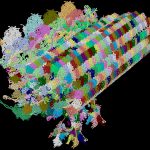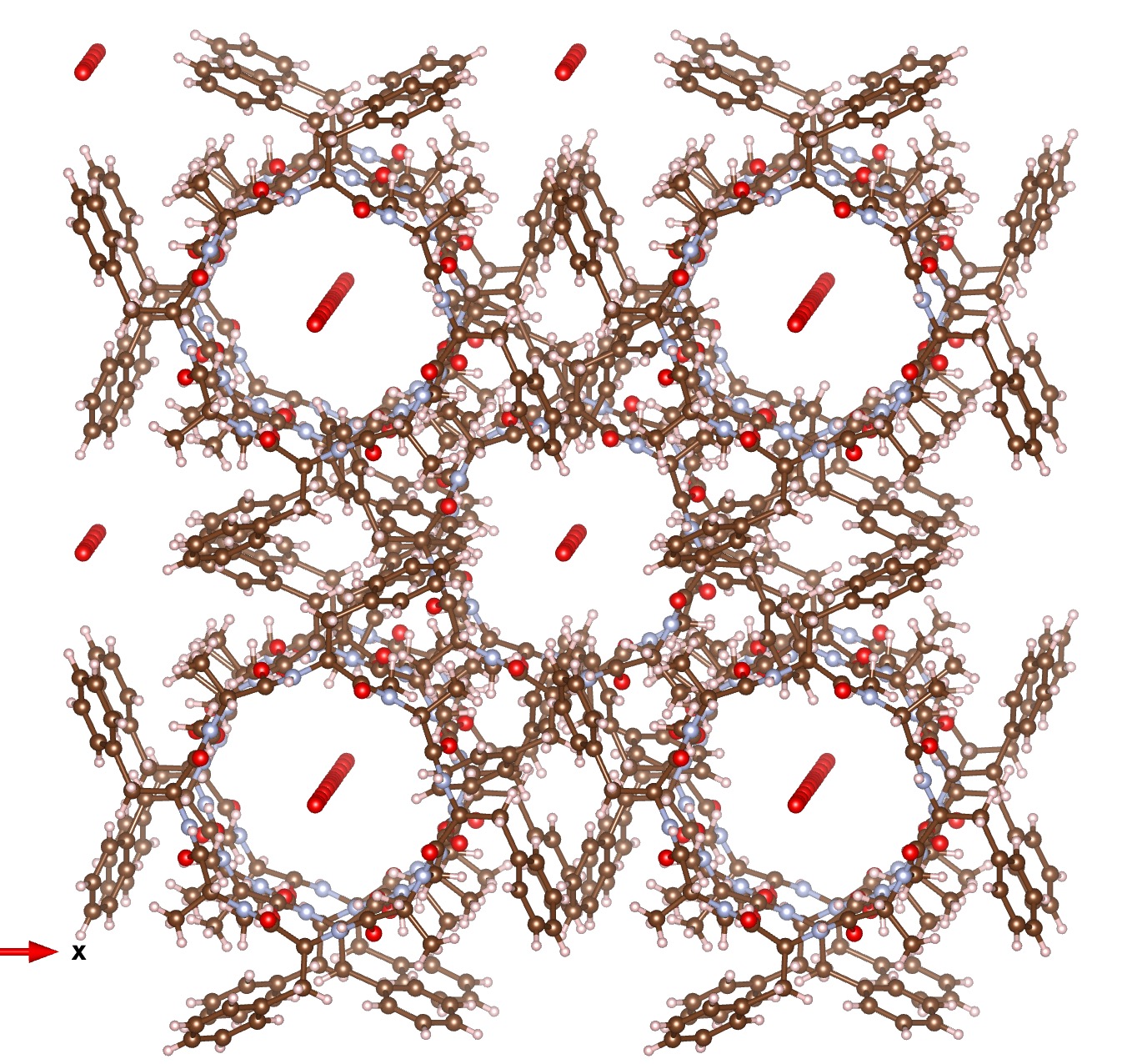I have written a few times about the so-called “anomeric effect”, which relates to stereoelectronic interactions in molecules such as sugars bearing a tetrahedral carbon atom with at least two oxygen substituents. The effect can be detected when the two C-O bond lengths in such molecules are inspected, most obviously when one of these bonds has a very different length from the other.
Rogue Scholar Posts
My research is about the interaction of (machine) representation and the impact on the success of data analysis (matchine learning, chemometrics, AI, etc). See the posts about molecular chemometrics. This got me into FAIR: making data interoperable and being able to (really) reuse data is the starting point of doing research.

The recent release of the DataCite Data Citation corpus, which has the stated aim of providing “a trusted central aggregate of all data citations to further our understanding of data usage and advance meaningful data metrics” made me want to investigate what the current state of citing data in the area of chemistry might be. Chemistry is known to be a “data rich” science (as most of the physical sciences are) and here on this very blog I
Following on from my template exploration of the Wilkinson hydrogenation catalyst, I now repeat this for the Grubbs variant of the Alkene metathesis reaction. As with the Wilkinson, here I focus on the stereochemistry of the mechanism as first suggested by Chauvin[1], an aspect lacking in eg the Wikipedia entry.

Just before the end of the year, the Wikidata subsetting: approaches, tools, and evaluation paper by Seyed Amir Hosseini Beghaeiraveri et al. got published (doi:10.3233/SW-233491). I am really excited our group (i.e. Ammar and Denise) has been able to contribute to this. I think it also is a great example of the power of hackathons to bring together people.

In the late 1980s, as I recollected here[1] the equipment needed for real time molecular visualisation as it became known as was still expensive, requiring custom systems such as Evans and Sutherland PS390 workstations.

On 24th January 1984, the Macintosh computer was released, as all the media are informing us. Apparently, some are still working. I thought I would give my own personal recollections of that period. In fact, the Mac reached UK stores via a dealership only in 1985.
Geoffrey Wilkinson first reported his famous work on the hydrogenation catalyst that now bears his name in 1965[1] and I met him at Imperial College around 1969 and again when I returned there in 1977.

First, a very brief history of scholarly publishing, starting in 1665[1] when scientific journals started to be published by learned societies. This model continued until the 1950s, when commercial publishers such as Pergamon Press started with their USP (unique selling point) of rapid time to publication of ~3 months,[2] compared to typical times for many learned society publishers of 2 years or longer.

Zosurabalbin[1],[2], is receiving a great deal of attention as a new class of antibiotic which can target infections for which current treatment options are inadequate.